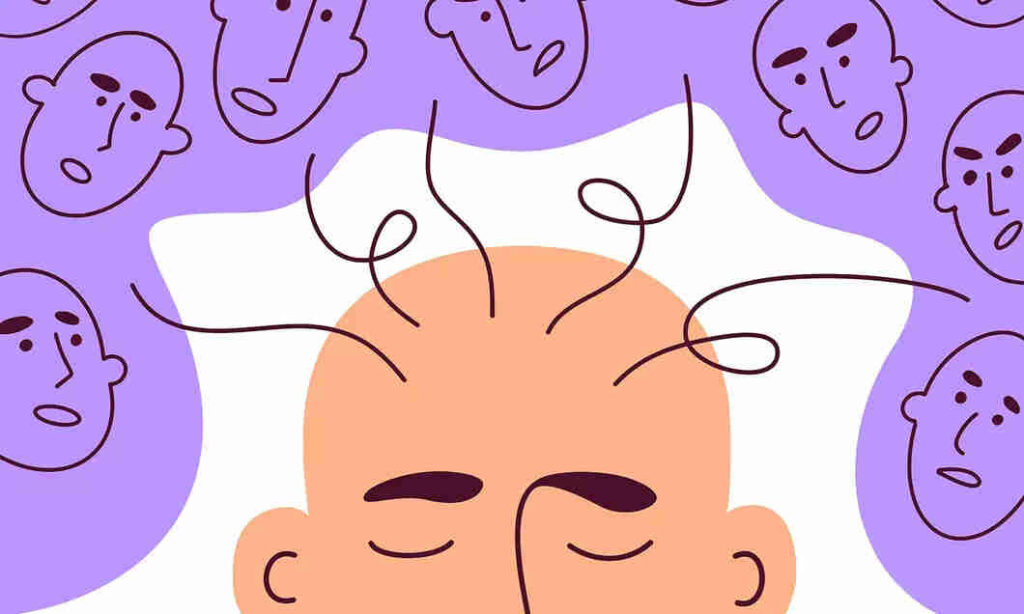Psychosis is a severe mental illness that can significantly impact the lives of not only individuals with the illness but also their loved ones. The impact can be profound, and household members may feel overwhelmed, scared, or helpless. Household therapy for lunacy is a specialized type of therapy that can help loved ones cope with and support the recovery of their family member.
Psychosis and Its Impact on the Family

Psychosis can manifest in a variety of ways, including hallucinations, delusions, and disorganized thinking. This can lead to difficulties in communication, relationships, and daily functioning. Family members may also experience a range of emotions, such as sadness, anger, confusion, or guilt. The stress and uncertainty of caring for someone with lunacy can also impact the physical and mental health of caregivers.
Importance of Family Therapy for Psychosis
Family therapy can help family members understand and cope with their loved one’s condition. It is also an opportunity for them to learn how to support their household member’s recovery and manage their own emotions and stress. In addition, household therapy can help reduce the risk of relapse and promote a positive home environment.
Understanding Psychosis
To understand the importance of household therapy for lunacy, it is essential to have a basic understanding of the illness.
Definition of Psychosis
Psychosis is a severe mental illness that affects a person’s ability to think, feel, and behave clearly. It is characterized by symptoms such as hallucinations, delusions, and disorganized thinking.
Symptoms of Psychosis

Psychosis is a severe mental illness that can affect a person’s ability to think, feel, and behave normally. The symptoms can be distressing and disruptive to daily life. It is important to be aware of the symptoms so that individuals can seek help as early as possible.
Hallucinations are one of the most common symptoms. Hallucinations are perceptions that occur without a corresponding external stimulus. They can take many forms, including seeing things that are not there, hearing voices, and feeling sensations that are not present.
Delusions are another common symptom. Delusions are false beliefs that persist despite evidence to the contrary. They can be paranoid, such as a belief that someone is out to harm them, or grandiose, such as a belief that they have special powers or abilities.
Disorganized thinking is another symptom. This can manifest as difficulty in organizing thoughts or communicating effectively. Individuals with lunacy may also exhibit speech that is difficult to understand or seemingly random.
Other symptoms may include confusion, agitation, inappropriate emotional responses, and a lack of motivation or interest in daily activities. The symptoms can vary from person to person, and not all individuals with lunacy will experience all of these symptoms. If you or a loved one is experiencing symptoms of lunacy, it is important to seek help from a qualified mental health professional.
Causes of Psychosis
The causes of psychosis are not entirely understood. However, research suggests that genetic, environmental, and biological factors may play a role.
Family Therapy for Psychosis

Family therapy involves working with the individual with the illness and their household members to promote communication, understanding, and support.
Goals of Family Therapy for Psychosis
The goals o may include improving communication, reducing stress, and increasing the family’s ability to support their loved one’s recovery. Treatment may also focus on educating home members about the illness and its management.
Techniques Used in Family Therapy for Psychosis

There are several techniques used in psychosis therapy that can help families cope with and support their loved ones. These techniques are designed to promote communication, understanding, and support within the family unit.
Cognitive-behavioral therapy (CBT) is a commonly used technique in-home therapy for lunacy. CBT focuses on identifying and changing negative thought patterns and behaviors that may be contributing to the individual’s symptoms. Household members can learn to identify negative thought patterns and behaviors in themselves and their loved ones and work to replace them with more positive and effective ones.
Psychoeducation is another technique used in family therapy for psychosis. Psychoeducation involves educating family members about the illness, its symptoms, and its management. Household members can learn about the causes of lunacy, the different types of treatments available, and how to support their loved one’s recovery. Psychoeducation can also help reduce stigma and promote understanding of the illness.
Skills training is another technique used in household therapy for lunacy. Skills training involves teaching household members practical skills to help them manage the challenges of caring for their loved ones. For example, home members may learn strategies for managing stress, promoting healthy habits, and communicating effectively.
Role of the Family in Recovery
The family can play a crucial role in supporting their loved one’s recovery. This may involve providing emotional support, helping with medication management, and promoting healthy habits, such as exercise and healthy eating.
Benefits of Family Therapy for Psychosis
Family therapy for psychosis can provide several benefits for both the individual with the illness and their family members.
Improved Communication and Understanding
Improved communication and understanding are essential components of home therapy for psychosis. Communication difficulties are common among families affected by psychosis due to the nature of the illness, which can cause disorganized thinking, inappropriate emotional responses, and confusion. These communication difficulties can lead to misunderstandings, conflicts, and feelings of frustration, guilt, and isolation among household members.
Family therapy can help improve communication by providing a safe and supportive environment for household members to express their thoughts and feelings. Therapists can facilitate communication by teaching active listening skills, providing feedback, and helping home members recognize and address communication patterns that may be hindering effective communication.
Reduced Burden on Caregivers

Caring for someone with psychosis can be challenging and emotionally taxing. Family therapy can help reduce the burden on caregivers by providing them with tools to manage stress and cope with the challenges of caring for their loved ones.
Enhanced Recovery and Relapse Prevention
Family therapy can also help enhance the individual’s recovery and reduce the risk of relapse. By providing a supportive and understanding environment, the household can help promote healthy habits and encourage their loved ones to adhere to treatment.
Conclusion
Psychosis can have a significant impact on both the individual with the illness and their family members. Household therapy for lunacy is a valuable tool for promoting understanding, communication, and support within the home unit. It can also enhance recovery and reduce the risk of relapse. If you or a loved one is experiencing symptoms of psychosis, it is essential to seek help from a qualified mental health professional. With proper treatment and support, there is hope for those affected by lunacy.
